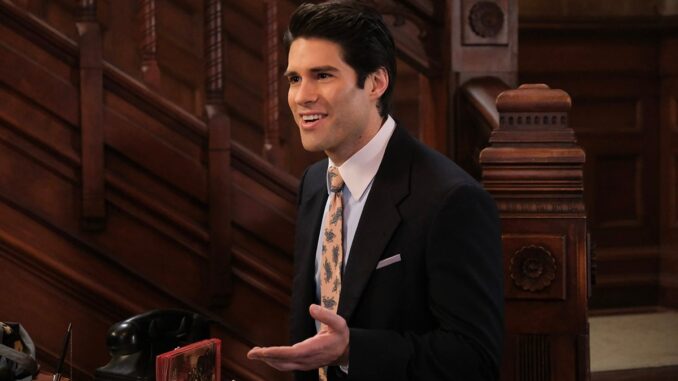
The landscape of television is increasingly striving for a tapestry of characters that mirrors the rich diversity of the real world. Yet, achieving "good representation" is a delicate art, requiring a balance of authenticity, nuance, and the avoidance of reductive stereotypes. CBS's Ghosts, with its delightful ensemble of specters from various eras, offers a unique canvas for this endeavor. Among its spectral residents is Jessica, the Jewish ghost from the 1980s, who, while often confined to the attic, provides an intriguing case study in contemporary Jewish character portrayal. The question then arises: Does Jessica offer good representation for Jewish identity? Largely, yes, by grounding her in relatable specifics and avoiding harmful tropes, though her literal and figurative position within the show also presents certain limitations.
One of the strongest arguments for Jessica's positive representation lies in her specificity. Unlike caricatures that might rely on broad strokes or outdated tropes, Jessica's Jewish identity is woven into the fabric of her character through a series of subtle yet authentic details. We learn she kept kosher, a practice that highlights a commitment to traditional Jewish law without making it her sole defining trait. Her memories of Hebrew school, Bar and Bat Mitzvahs, and the importance of family gatherings like shivas (mourning periods) are not just throwaway lines but anchor her within a recognizable cultural and religious framework. The episode where her family visits the house for what they believe is a shiva for her is particularly poignant, illustrating the enduring bond of Jewish familial memory and tradition, even across the veil of death. These elements paint a picture of a Jewish individual whose background is integral to her life experience, but not the entirety of her being.
Furthermore, Jessica’s character deftly sidesteps many of the negative stereotypes that have plagued Jewish representation in media for decades. She is not portrayed as overly neurotic, pushy, materialistic, or hyper-intellectual in a one-dimensional way. Instead, she is sweet, a bit naive, eternally optimistic, and surprisingly well-versed in pop culture (her love for Friends being a running gag). Her identity as a young woman who died tragically at a party humanizes her, making her relatable beyond her religious affiliation. Her Jewishness is presented as a natural part of her identity, rather than a defining eccentricity or a punchline. This normalcy is, in itself, a form of excellent representation – it normalizes Jewish people simply existing as regular individuals within a diverse world, rather than perpetually standing out as "other."
However, to offer a truly illustrative analysis, one must also acknowledge the inherent limitations of Jessica's portrayal within the show's format. As a ghost literally confined to the attic, her interactions and narrative arcs are necessarily limited. Her literal "otherworldliness" as a spirit could, for some, metaphorically reflect a perceived distancing or isolation of Jewish characters in media. More significantly, her relatively peripheral role means that her Jewish identity is explored primarily through cultural markers rather than deeper theological or philosophical questions. We don't delve into her personal struggles with faith, her interpretation of Jewish law, or her engagement with the broader complexities of Jewish identity beyond familial and communal rituals. This "Judaism Lite" approach, while understandable given the show's comedic tone and ensemble nature, means that her representation, while positive, may lack the profound depth and internal conflict that could resonate more deeply with diverse Jewish experiences. She is an idealized, gentle representation, perhaps less equipped to tackle the nuances of modern Jewish life, including issues of antisemitism, assimilation, or differing denominational practices.
In conclusion, Jessica from CBS Ghosts largely offers a commendable and refreshing portrayal of a Jewish character. Her grounded details, avoidance of harmful stereotypes, and endearing personality contribute significantly to positive representation on mainstream television. She embodies the idea that a character's Jewish identity can be an organic and authentic part of who they are, rather than their sole defining characteristic. While her spectral confines and the show's format prevent a truly exhaustive exploration of Jewish life, her presence marks a meaningful step forward, broadening the spectrum of how Jewish individuals are seen and understood in popular culture. She reminds us that sometimes, good representation lies not in grand statements, but in the quiet, authentic details of a ghost who just wants to watch another episode of Friends.